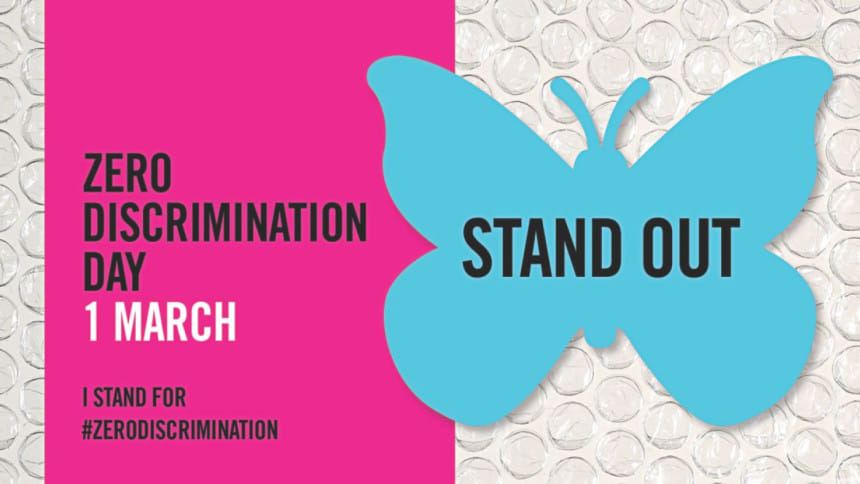Observing Zero Discrimination Day

Discrimination continues to undermine efforts to achieve a more just and equitable world and causes pain and suffering for many. Discrimination has many forms, from racial or religious discrimination to discrimination based on gender, sexual orientation or age, and to bullying at school or at work. Discrimination remains widespread – gender, nationality, age, ethnic origin, sexual orientation or religion can all unfortunately be the basis for some form of discrimination. In only four out of 10 countries worldwide do equal numbers of girls and boys attend secondary school and 75 countries have laws that criminalize same-sex sexual relations.
Many people face discrimination every day based on who they are or what they do. That no one should ever be discriminated against because of their age, sex, gender identity, sexual orientation, disability, race, ethnicity, language, health (including HIV) status, geographical location, economic status or migrant status, or for any other reason is what UNAIDS is highlighting on Zero Discrimination Day.
In December 2013, on World AIDS Day, UNAIDS, a UN program on human immunodeficiency virus (HIV) and Acquired Immune Deficiency Syndrome (AIDS), launched its Zero Discrimination Campaign. From 2014 onward, every year on 1 March, people around the world join together to celebrate Zero Discrimination Day. The UN first celebrated Zero Discrimination Day on March 1, 2014.
Discrimination in health-care settings also continues to be widely reported. Imagine a young woman newly diagnosed with HIV being told by her doctor that she must be sterilised, a sex worker facing violence or abuse from a nurse, a disabled person denied access to proper advice about their sexual health, a gay man frightened of disclosing his sexuality to medical staff, a person who injects drugs dying after being refused treatment or a transgender person attempting suicide after being turned away from a clinic. All of the aforementioned persons undergo the same stereotypical society and prejudices which make them fall victims to discrimination.
The aim with which the zero discrimination day is observed, is to ensure that health-care settings be considered as safe and caring environments. However, such cases are happening too frequently throughout the world. Any obstacles that inhibit access to health-care facilities, including to testing, treatment and care services, must be removed. Access to health must be open to everyone.

 For all latest news, follow The Daily Star's Google News channel.
For all latest news, follow The Daily Star's Google News channel. 



Comments